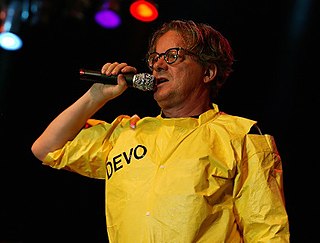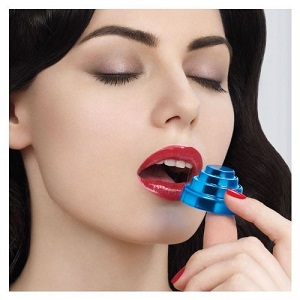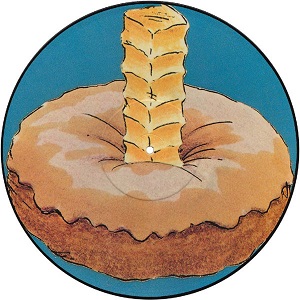| Look up space junk in Wiktionary, the free dictionary. |
Space Junk , or space debris, is defunct artificial objects in space, principally in Earth orbit.
Space Junk may also refer to:
| Look up space junk in Wiktionary, the free dictionary. |
Space Junk , or space debris, is defunct artificial objects in space, principally in Earth orbit.
Space Junk may also refer to:

DEVO is an American rock band from Akron, Ohio, formed in 1973. Their classic lineup consisted of two sets of brothers, the Mothersbaughs and the Casales, along with Alan Myers. The band had a No. 14 Billboard chart hit in 1980 with the single "Whip It", the song that gave the band mainstream popularity.

Mark Allen Mothersbaugh is an American composer, singer, and multi-instrumentalist. He came to prominence in the late 1970s as co-founder, lead singer and keyboardist of the new wave band Devo, whose "Whip It" was a top 20 single in the US in 1980, peaking at 14, and which has since maintained a cult following. Mothersbaugh is one of the main composers of Devo's music.

Wang Chung are an English new wave band, formed in London in 1980 by Nick Feldman, Jack Hues and Darren Costin. The name Wang Chung means "yellow bell" in Chinese, and is the first note in the Chinese classical music scale. The band found their greatest success in the US, with five Top 40 hits there, all charting between 1983 and 1987, including "Dance Hall Days", "Everybody Have Fun Tonight" and "Let's Go!".
Wang Chung may refer to:

"Everybody Have Fun Tonight" is a song performed by the British new wave group Wang Chung, released as a single from their album Mosaic in 1986. Collaboratively written by Jack Hues, Nick Feldman, and Peter Wolf, it reached #2 on the US Billboard Hot 100 chart on Christmas 1986 behind "Walk Like an Egyptian" by The Bangles. It also hit #1 on the Canada RPM Top 100 Singles chart the week of 17 January 1987. With some different lyrics, the original ballad version of the song was placed on the B-side.

New Traditionalists is the fourth studio album by the American new wave band Devo. It was originally released in August 1981, on the labels Warner Bros. and Virgin. The album was recorded over a period of four months between December 1980 and April 1981, at The Power Station, in Manhattan, New York City. The album's sound continued in the vein of their previous studio album Freedom of Choice, with synthesizers moved even further to the forefront and the guitars became more subdued. Some of the tracks featured drum machines for the first time on a Devo album. In addition, the lyrics are frequently dark and vitriolic. It features the minor hits "Through Being Cool" and "Beautiful World".

An energy dome is a helmet often worn by the American new wave band Devo as part of the members' stage outfits. The dome was first worn during the band's Freedom of Choice campaign of 1980. It reappeared in the 1982, 1988, and 1990 tours, as well as most performances since 1997. The domes were custom made for the band from vacuum formed plastic, in a distinctive round, ziggurat shape, and are occasionally—and incorrectly—referred to as "power domes" or "flowerpots". The shape is also reminiscent of the Waldviertel Pyramid. When asked about the story behind the hats, Mark Mothersbaugh recounted:
We designed them [their hats], Jerry [Casale] and I. We were influenced both by German Bauhaus movement and geometric fashion, and Aztec temples. We just liked the look. It looked good, and it didn't look like any other bands out there. We weren't interested in wearing groovy hats or groovy clothing. We kind of looked like Lego toys or something by the time we got those on our heads, and that was a positive thing.

Gerald Vincent "Jerry" Casale is an American musician, composer, music video director, and vintner.

"Mongoloid" is the first single released by American new wave band Devo in 1977, on the Booji Boy Records label. It was backed with the song "Jocko Homo". "Mongoloid" also had one of the first music videos made using collage. "Mongoloid" would later be re-recorded by Devo and appeared on the album Q: Are We Not Men? A: We Are Devo! in 1978. It is also a staple of Devo's live shows.

Q: Are We Not Men? A: We Are Devo! is the debut studio album by the American new wave band Devo. It was originally released in August 1978 on the Warner Bros. label. Produced by Brian Eno, the album was recorded between October 1977 and February 1978, primarily in Cologne, West Germany.

"Dare to Be Stupid" is an original song by "Weird Al" Yankovic. It is a musical pastiche of the band Devo.
Everybody Wang Chung Tonight: Wang Chung’s Greatest Hits is one of two compilations by Wang Chung. Released in the spring of 1997, this compilation contains all eight of the band’s charted singles from 1984 through 1989.
20th Century Masters – The Millennium Collection: The Best of Wang Chung is the second of two compilations by Wang Chung. Released in the fall of 2002, this compilation contains all eight of the band’s charted singles from 1984 through 1989. The album also includes "Wait" from Points on the Curve, "What's So Bad About Feeling Good?" from The Warmer Side of Cool, and "Space Junk " from the previous compilation. "What's So Bad About Feeling Good?" is the only song from the 1982-1989 period to not appear on any chart in the U.S. or the UK, and still make the cut for a Wang Chung compilation album.
Nicholas Laurence Feldman is an English musician best known for forming the 1980s British new wave band Wang Chung. Feldman was half of the duo Promised Land, which also featured Jon Moss of Culture Club. He was a founding investor in Interactive Ideas and has worked for Warner Brothers, Sony Music and SonyBMG.
To Live and Die in L.A. may refer to:

Something for Everybody is the ninth and most recent studio album by the American new wave band Devo. It was originally released in June 2010 on their original label Warner Bros., and was their first issued on that label since their sixth studio album Shout in 1984. The album was recorded between July 2007 and mid-2009, at Mutato Muzika, in West Hollywood, California. The album is the last Devo album to feature Bob Casale, who died in February 2014.
Events from the year 1958 in Taiwan, Republic of China. This year is numbered Minguo 47 according to the official Republic of China calendar.

"That's Good" is a song by the American new wave band Devo, written by Mark Mothersbaugh and Gerald Casale. It appears on their fifth studio album Oh, No! It's Devo. According to Casale, "the lyrics deal with the ambiguity that if everybody wants what you want, how can everybody have it if everybody wants it and what happens when everybody tries to get it, and maybe you should change what you want."
"She Was Killed by Space Junk" is the third episode of the HBO superhero drama miniseries Watchmen, based on the 1986 DC Comics series of the same name by Alan Moore and Dave Gibbons. The episode was written by Damon Lindelof and Lila Byock and directed by Stephen Williams, and aired on November 3, 2019. It introduces the character of Laurie Blake, formerly the vigilante Silk Spectre but now a member of the FBI's Anti-Vigilante's Task Force.

Kooky Spooky...In Stereo is the sixth studio album and the ninth album overall by American band The Aquabats, released on August 21, 2020.